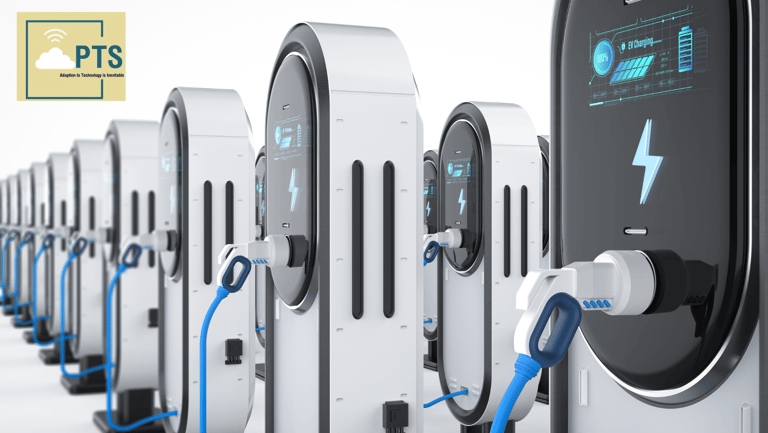Book Series
Aim and Scope
Engineering applications are rapidly evolving, becoming increasingly complex and data-driven. Traditional optimization methods often struggle to keep pace, leaving engineers yearning for robust and adaptable solutions. Metaheuristics, inspired by natural processes like evolution and ant colonies, rise to meet this challenge. These powerful algorithms offer flexible optimization tools, capable of tackling intricate problems across diverse engineering domains.
Artificial Intelligence & Machine Learning (AI & ML): Fine -tuning a complex neural network, searching for the ideal configuration amidst countless parameters. Metaheuristics excel at such optimization tasks. They can optimize hyperparameters, select features, and even shape neural network architectures, unlocking the full potential of AI and ML algorithms.
Robotics & Automation: Robots navigating dynamic environments, drones efficiently delivering packages, and automated systems operating seamlessly – these feats rely heavily on optimization. Metaheuristics empower robots to plan collision-free paths, schedule tasks meticulously, and allocate resources strategically, transforming them into adaptable and efficient workhorses.
Industrial IoT & Cyber-Physical Systems (CPS): The symphony of interconnected sensors, machines, and data in industrial settings demands effective coordination. Metaheuristics play a crucial role, optimizing resource allocation, communication protocols, and even data analysis in these complex systems. By ensuring efficient data flow and decision-making, they pave the way for smooth operation and enhanced system performance.
Intelligent Manufacturing & Smart Cities: Manufacturing thrives on optimized production schedules, predictive maintenance, and meticulous quality control. Metaheuristics lend a hand, optimizing these processes while also contributing to smart city initiatives. They manage traffic flow, allocate resources for energy usage, and even monitor infrastructure, transforming cities into efficient and sustainable hubs.
Sustainable Technologies & Automation: As humanity strives for a greener future, metaheuristics provide invaluable support. They optimize renewable energy systems, manage energy storage efficiently, and even allocate resources for sustainable waste management. By enabling optimal operation and minimizing environmental impact, they contribute significantly to building a sustainable future.
Metaheuristics are not just optimization tools; they are catalysts for innovation across diverse engineering disciplines. By understanding their context and potential in each area, we unlock a future where complex problems are tackled efficiently, sustainably, and ethically, paving the way for a brighter and more innovative tomorrow.
Contents
We invite original contributions to the proposed book with an objective to develop and discuss latest findings.
Broadly the following areas are aimed to be covered in the proposed book but are not limited to :
Evolutionary Algorithms: Genetic algorithms, particle swarm optimization, differential evolution.
Nature-Inspired Metaheuristics: Simulated annealing, ant colony optimization, artificial bee colony optimization.
Hybrid Metaheuristics: Combining different metaheuristics for enhanced performance.
Machine Learning and Metaheuristics: Integration and synergistic benefits.
Robotics and Automation: Motion planning, pathfinding, task optimization in robots and industrial systems.
Industrial IoT and Cyber-Physical Systems: Resource allocation, network optimization, data analytics in connected systems.
Intelligent Manufacturing: Smart scheduling, predictive maintenance, quality control, and process optimization.
Smart Cities: Traffic management, energy optimization, infrastructure monitoring, and resource allocation.
Sustainable Technologies: Renewable energy optimization, energy storage management, and environmental impact reduction.
The Book will be published in the series of Advances in Metaheuristics, Taylors & Francis
https://www.routledge.com/Advances-in-Metaheuristics/book-series/AIM


Title: Metaheuristics in Engineering Applications
Aim and Scope
Aim and Scope
Artificial Intelligence (AI) is igniting a revolution in electric vehicles, pushing the boundaries of performance, innovation, and user experience. From optimizing energy consumption and enabling smart charging to enhancing safety and security, AI is paving the way for a cleaner, greener future. Imagine vehicles that learn your driving habits, adjust to your preferences, and anticipate your needs. AI algorithms analyze data from a myriad of sensors, making real-time adjustments to optimize efficiency, improve performance, and predict potential issues before they arise. This translates to longer range, smoother rides, and worry-free maintenance. But the impact of AI extends beyond the individual vehicle. Smart infrastructure powered by AI optimizes charging networks, reduces congestion, and promotes sustainable transportation practices. This creates a synergistic ecosystem where vehicles and their environment work in harmony, contributing to a healthier planet.
However, this transformation demands agility and adaptability. The automotive industry is evolving at breakneck speed, driven by new consumer demands, stricter regulations, and the ever-growing power of software. Here's where AI becomes a game-changer. By automating processes, analyzing vast amounts of data, and driving innovation, AI equips automakers with the tools they need to navigate this dynamic landscape. It paves the way for faster, more efficient development cycles, and ultimately, creates vehicles that are not just smart, but desirable.
This book is an invitation to anyone who's curious about the future of transportation and the transformative power of AI. Whether you're an industry professional, a tech enthusiast, or simply someone who dreams of a cleaner and more efficient way to get around, "Role of Artificial Intelligence in Electric Vehicle Technology" will equip you with the knowledge and insights needed to navigate the exciting road ahead. This book also aims to gather the latest findings of the National and International Research Community on different aspecst of Electric Vehicle in particular, Experimental and Computational contributions. The aim is to bring all configuration of Electric Vehicle in a single book from different organization, Industries, OEM’s, Research Organizations, Institutes and Universities working on the mentioned topics.
Contents
We invite original contributions to the proposed book with an objective to develop and discuss latest findings of Electric Vehicle in particular using experimental, numerical, analytical, and optimization approaches. The book aims to provide challenges in the design and performance of EVs on a single platform.
Broadly the following areas are aimed to be covered in the proposed book but are not limited to
Artificial Intelligence in:
Electric vehicle wireless power transfer systems in smart grids.
Energy management and coordination of energy generation with smart charging of
Electric vehicles, vehicle to grid and energy storage to enhance grid stability, increase energy
Autonomy and reduce carbon footprint.
Eco system and system architecture for electric mobility
Electric vehicle design, modelling and optimization
Hybrid electric vehicles for energy and environment assessment
Automotive and grid scale applications for sustainability assessment
Power supply management for an electric vehicle
Car software and electronics architecture
Electric vehicle life cycle assessment
Electric vehicles charging systems in industrial, commercial, and residential scenarios
Technology for electric vehicle scheduling of charging and discharging
Based optimal planning of electric vehicle infrastructure
Techniques utilized in multi-agent systems for electric vehicles
A deep learning algorithm for optimal power distribution based on prediction for EVs
Sustainability and the Future of Transportation
Ethical Considerations and Safety Concerns
Configurations of Electric Vehicles
Performance of Electric Vehicles
Traction Motor Characteristics and its transmission
Electric Propulsion Systems (DC Motor Drives, Induction Motor Drives, Switched Reluctance Motor Drives etc.)
Battery Management System
Balancing systems for the cells, the batteries and the packs.
Ageing of batteries, State of Health estimation,
End of Life criteria definition for second life batteries,
Design methodologies of the second life battery system,
Architecture of the second life battery system,
Management of the second life battery system,
Techno-economic and market analysis,
Life cycle assessment of second life battery applications,
Market volumes for second life batteries
Alternatives for ageing vehicle batteries beside the stationary market
Safety issues for batteries
Crash Safety of Hybrid and Battery Electric Vehicles
Guidelines for Battery Crash Safety and Post-Crash Safe Handling
Mechanical Aspect (includes controlled crush, penetration, drop, immersion, Impact roll-over simulation, vibration, and mechanical shock)
Electrical and Thermal Aspects
Safety risks of aged batteries
Risks, Requirements and Solutions out of the Crash Safety Point of View
Crash safety by regulation and standard
Thermal Management
Application of machine learning to battery thermal management
Passive and Active cooling techniques for battery cooling
Multiphase heat transfer for battery thermal management
Application of complex fluids (including Nano fluids) to battery thermal management
Hybridized cooling techniques applied to batteries
Multiscale simulations with the inclusion of electrochemistry
Novel techniques for battery thermal management
Energy and thermo-economic analysis of battery thermal management
Applications of phase change materials and integration with other energy systems
The Book will be published in the series of Advances in Metaheuristics, Taylors & Francis
https://www.routledge.com/Advances-in-Metaheuristics/book-series/AIM



